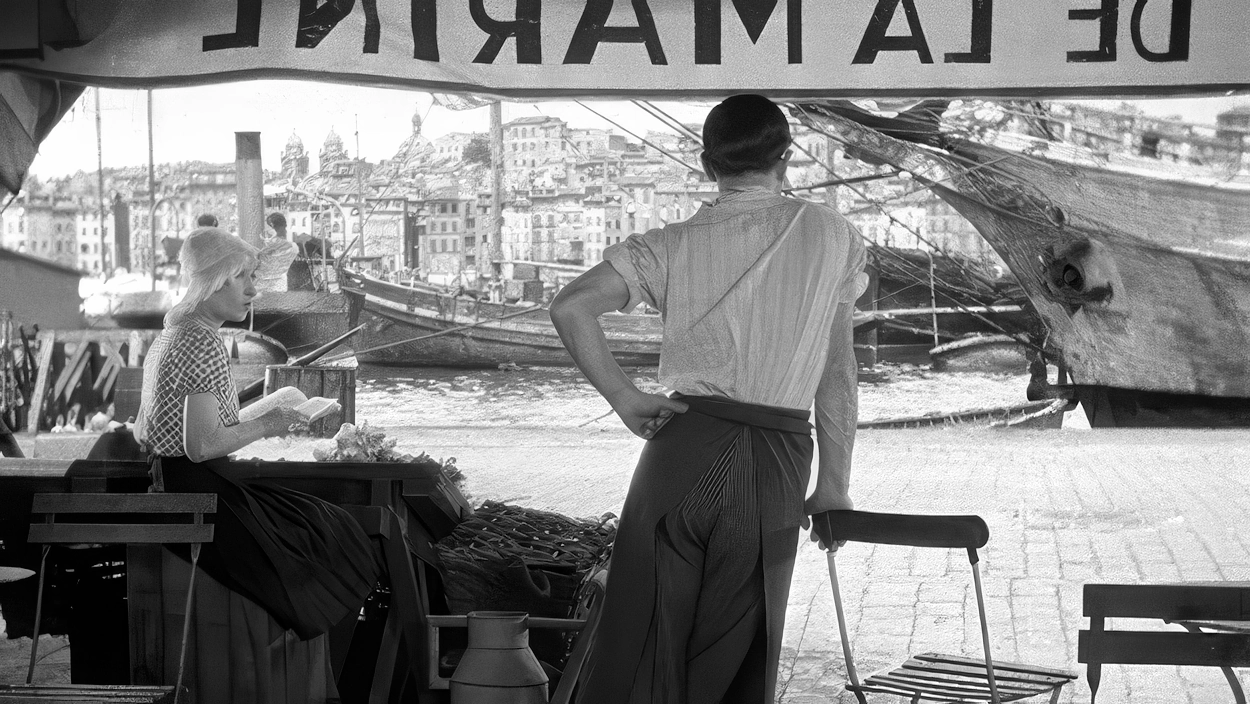Fewer things drive me crazier than the notion that some stories are so “important” that they demand to be serialized. As much as I love the first two parts of The Godfather, the third one does nothing to improve the story (or my life, for that matter). The Lord of the Rings quickly becomes repetitive, while Star Wars takes narrative redundancy to ridiculous extremes when it becomes a trilogy of a trilogy of a trilogy.
It’s too bad that this modern idea of the cinematic trilogy is to inflate a singular success into spin-offs since most of these stories lack the complexity to withstand serializing. It is especially maddening when one realizes that real complexity has nothing to do with plot.
The first great trilogy in the sound era is Marcel Pagnol’s 1931-36 Marseille Trilogy. This is longform storytelling where no one pulls a gun, the most high-tech vehicle is a schooner, and no pixels are asked to lay down their lives in numbingly “epic” CGI battles. It is, in its own quiet and beautiful way, a simple tale of love and life in a French harbor town.
Fanny and Marius love each other, but he also loves the sea. When he heads off to adventure, Fanny finds that she is pregnant and accepts a proposal from the much older local businessman Panisse. After several years, Marius returns expecting to marry Fanny, only to find her with a teenage son – his son – and a settled married life.
That’s it. That is the entirety of a plot that is stretched over more than six hours. And I wouldn’t trade one second of it for all the power in the Force. What Pagnol creates in his story is a tapestry, a collection of tiny moments and images that weave a detailed picture of these characters and their enclosed waterfront world.
All of these characters function as both individuals and archetypes. Pagnol pulls off this seemingly impossible trick by sticking to his unadorned story. Because he has little interest in constantly flinging complications at them, his characters have ample opportunity to grow and reveal themselves to us beyond the bounds of the plot.
Fanny (Orane Demazis) is all romantic notions and fluttering heart, but she is also given sufficient steel to find the maturity she needs to step out of her fantasies and into the difficulties of adulthood. Marius (Pierre Fresnay) could so easily come across as a cad, but enough time is given over to understanding his painfully conflicting passions for Fanny and the sea that our hearts ache for him. And the wealthy Panisse (Fernand Charpin) is hardly painted to be a Gallic Mr. Potter. Instead, he is a lonely man with a bottomless well of compassion and love in his heart for Fanny and his adopted child. The tension in this story comes not from the desire to see Fanny “saved,” but from our own feeling of being torn about what is the best way for her to go. It is worth noting that this is a compelling tale without a single villain, just good people trying their best with what life has given them.
Pagnol, though, is up to something more than just this small tale of love between three people. Into this mix steps Cesar, Marius’ father and the local tavern owner. Alternately silly and wise, he stands in for the entire community. His tolerance and love are seen as the strongest threads that make up Pagnol’s tapestry, precisely revealing the soul of this waterfront town. Played by the iconic French star Raimu, Cesar keeps us open to both the drama and comedy that drive this tale of modest lives.
This romance has had many lives. In 1954, Josh Logan and S.N. Behrman adapted it into Fanny, a stage musical, then Logan converted this into a non-musical 1960 film starring Leslie Caron, Charles Boyer and Maurice Chevalier. Daniel Auteuil picked up the story in 2013 with the remakes Fanny and Marius. Each is fine in its own way, but none fills the sail in quite the same way as the original.
Pagnol’s trilogy takes us to a lovely, logical and yet touchingly ambiguous conclusion. We know where these characters are at the moment we leave them, but we know that their story will go on. Pagnol gives us the first three installments. May the fourth be with you.


